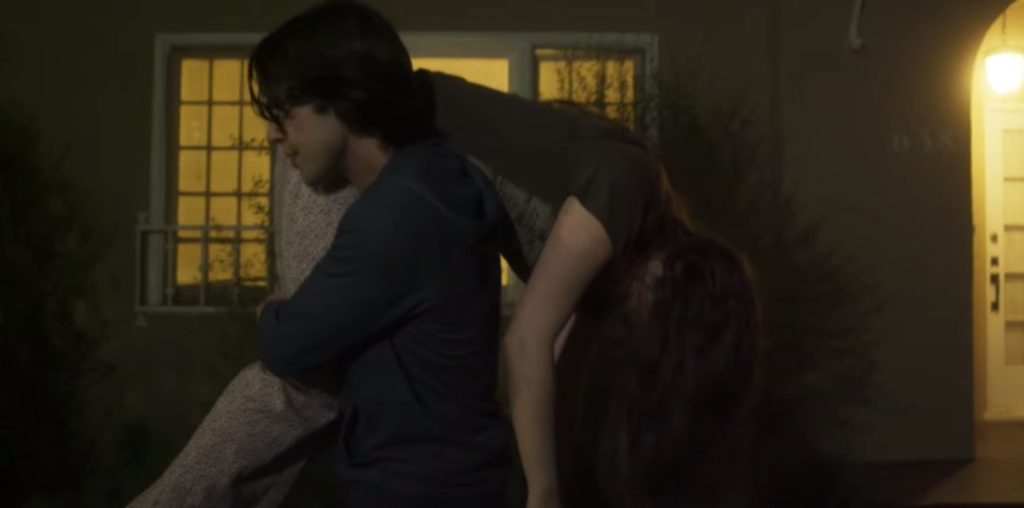
Emmett Loverde’s Till You Get to Baraboo is the story of a confused man coming to grips with his own feelings about love and past relationships. In Las Vegas for his best friend Judy’s (Jennifer Siebel Newsom) wedding, Roland (William Mendieta) finds himself in his hotel room consistently bickering with his own conscience and memories of lovers past. Does Roland truly want love? Has he ever been in love? Where does his heart lie now?
Taking place predominantly in the aforementioned hotel room, Roland’s memories of old girlfriends often appear in the flesh to converse with, and confuse, him at almost every turn. Eventually it gets to the point where everything about the trip is under scrutiny, as he (and at times the audience) has trouble distinguishing real from fantasy. Like the delivery guy (Tom Schanley) who sounds an awful lot like his old imaginary friend, the cigar-smoking duck.
Story-wise, I’ll admit that I got confused a bit, but that’s not all surprising considering the main drift of the flick is that Roland is equally, if not moreso, confused. While I didn’t follow everything perfectly, it’s not hard to see that the film wears its heart on its sleeve, and delivers a tale of conflicted love that is far more family-friendly than most films about adults in a haze of relationship confusion. Additionally, the dialogue is extremely well-written and the wordplay can be quite fun at times (even if I didn’t always enjoy the delivery).
Most of the issues I had with the film could likely be considered pluses depending on how you like your movies. For example, the film is extremely crisp and clean in the frame. This could be considered a positive for most people, but for me it felt too flat. I’m just not a fan of everything in the frame being completely in focus (and I don’t mean blur for blur’s sake; I’m talking building visual composition with depth of field) or the frame being consistently too large for what’s taking place within it. I’m not saying I’m looking for extreme close-ups, but when everything has ample space around it at all times, the imagery on screen begins to feel tiny, and the locations become more empty in relation.
Additionally, the dialogue often had that super-clean and clear ADR feel to it; you know, where the sound coming from the mouths doesn’t quite seem to feel right, like it’s not actually happening at the same time. Again, it’s easy to understand and follow, but it felt overly artificial to me.
But again, my minuses could be someone’s pluses; many people like their films to be crystal clear in look and sound. For me, that aesthetic is more television show or theatrical play than film. As such, while much of the film is indeed fantastical in nature, it feels more false than it should.
In its way, Till You Get to Baraboo is sweet and ultimately harmless. It wasn’t my type of film, but I do appreciate what it was trying to do and, despite my own aesthetic gripes, it does tell its tale in a unique way.
This film was submitted for review through our Submission for Review system. If you have a film you’d like us to see, and we aren’t already looking into it on our own, you too can utilize this service.

Thank you, Mark Bell and Film Threat, for a fair and honest review. We appreciate it. If any of your readers wants to view “Till You Get To Baraboo” for free online, they can do so at http://youtu.be/6Jqwitn-_RQ until May 15, 2012.